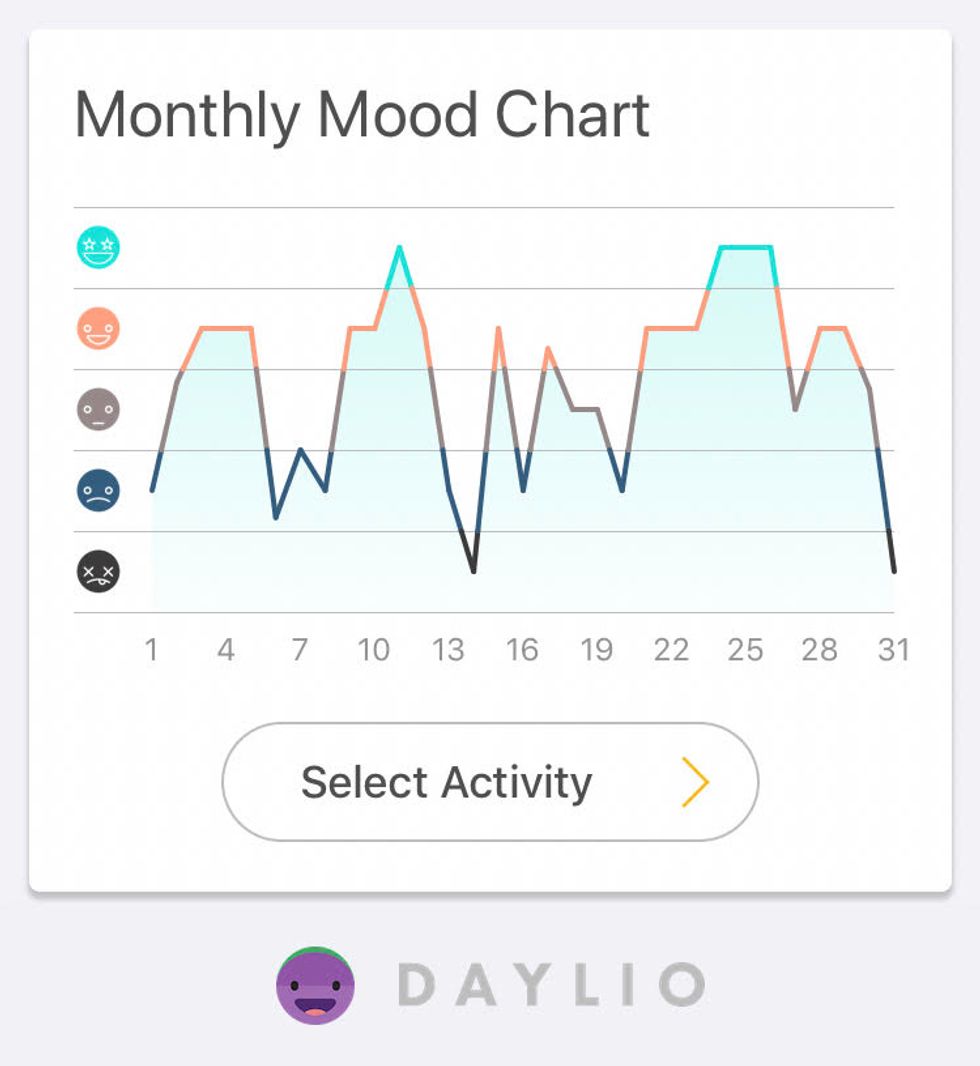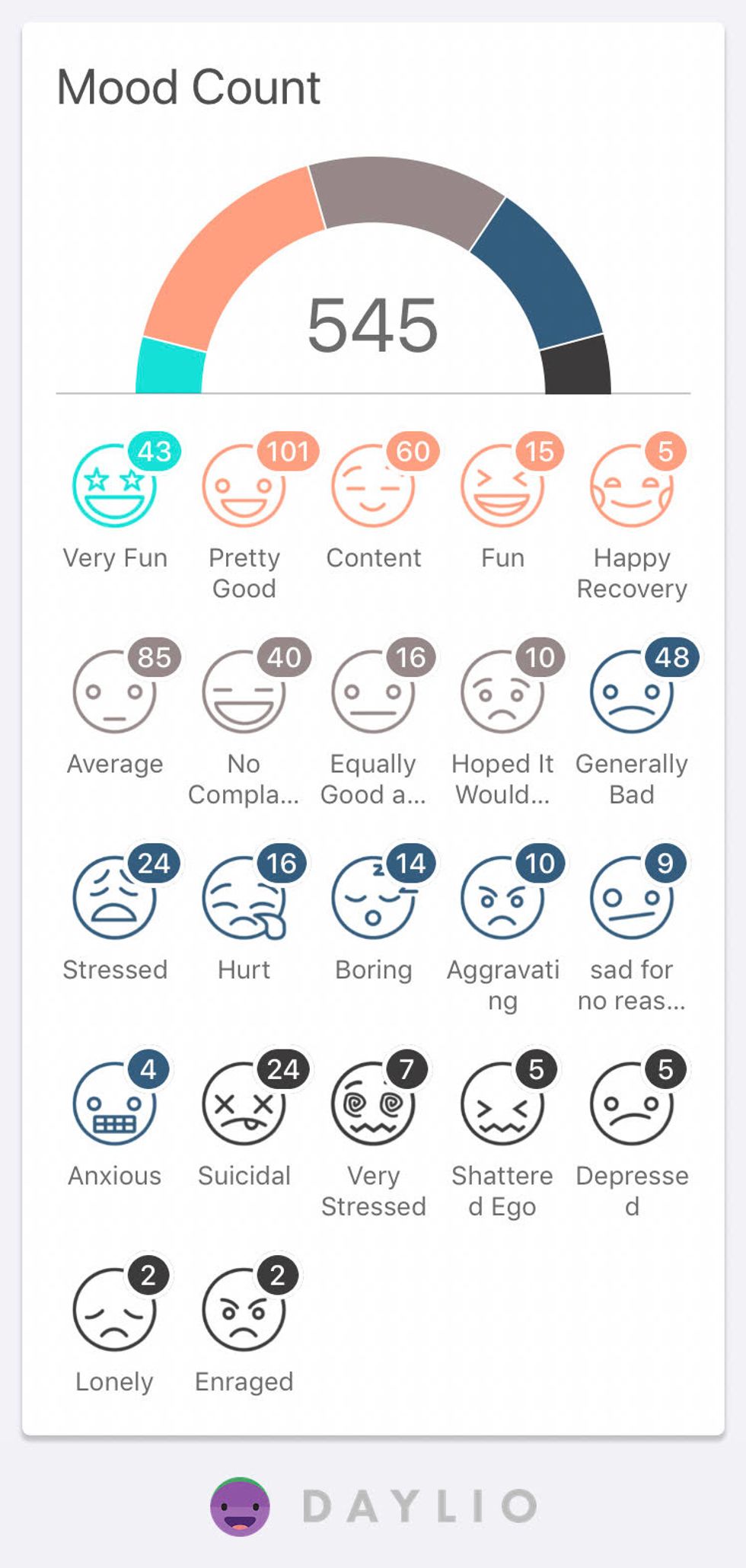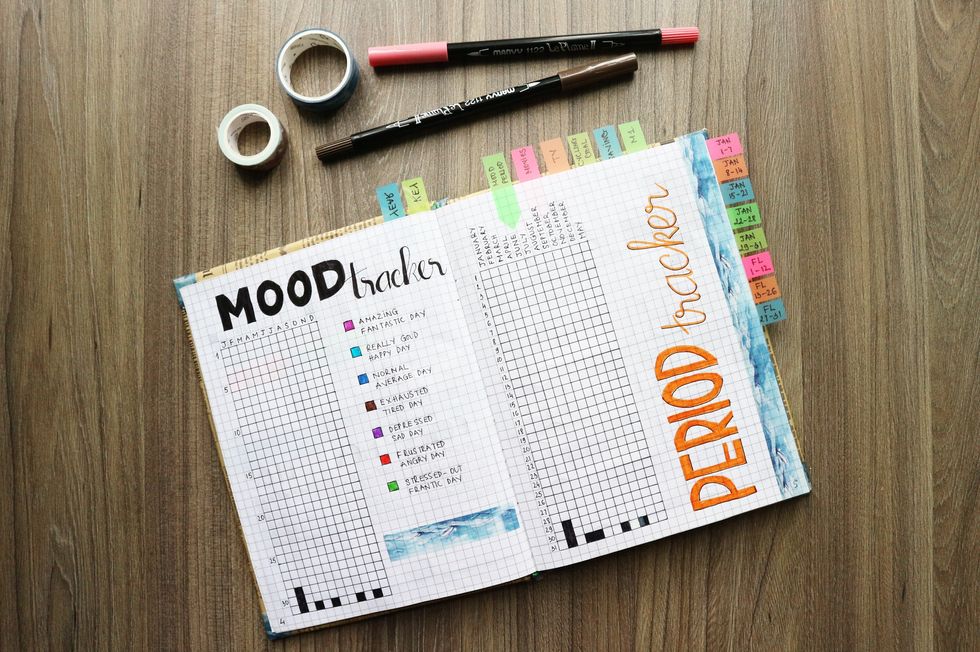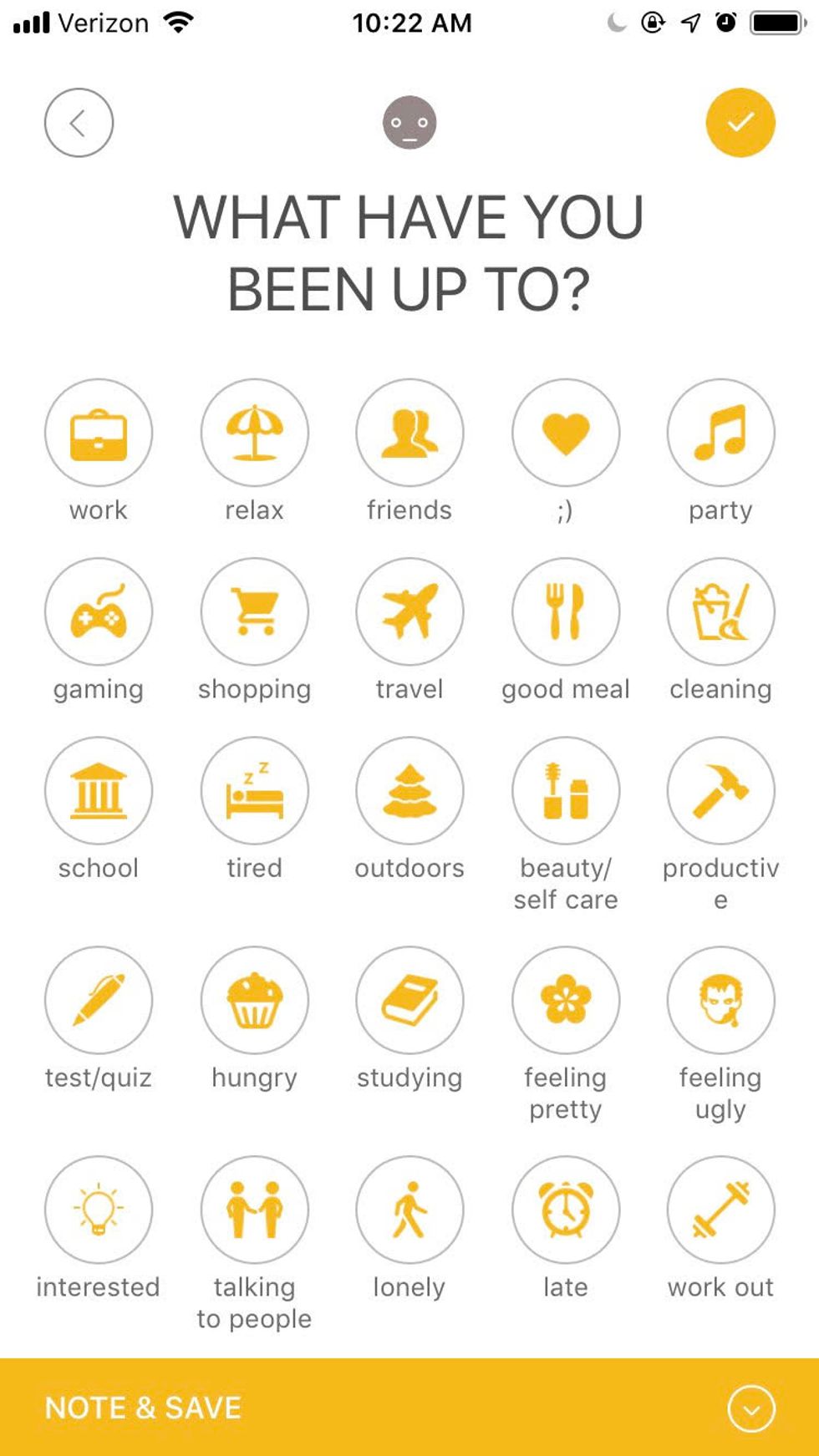
If you've ever struggled with a mental illness like anxiety or depression (which, let's be real, is very common, especially in a college setting), you've probably been told by someone that all of your problems will go away the moment you start a mood journal. That, along with exercising, breathing, cleaning up your room, and my personal favorite: just thinking positive thoughts. As you can probably tell, I've gotten sick and tired of people offering generic advice to mentally ill people. I mean, if someone is too depressed to even leave their bed, telling them to work out once a day isn't going to happen, it's just not. Most people are going to want to use something that takes a minimal amount of effort, like using an app to track their mood. That's exactly how I managed to keep up my mood journal for nearly an entire year, and I don't plan on stopping.
I use an app called Daylio, which is a really simple app: you rate your mood, add activities that you did, and then you have the option to write about your day in the Notes section. Here's an example of how it would work:
The app itself is free, but you can buy the full version for about $5 (which is a one-time purchase, by the way), which I would recommend doing because it allows you to create a range of moods and activities and really personalize your experience.
Your emotions are very subjective to the events going on around you
I no longer want to hear anyone tell someone that "things could be worse" or that "other people are going through more". Such phrases are ridiculous to say because not only is that completely invalidating another human's feelings and experiences, but each person's mood is heavily dependent on what they consider to be an "average" day.
As I continued to keep up my mood journal, I ended up feeling happier because I was able to cue in on the things that improved my day, but the charts don't indicate an increase in my mood. For example, my average day used to consist of going to school without talking to a single person. Yeah, I was that kid. I thought that the more people got to know me, the more they would dislike me, so it was best to just be completely silent. This made me totally miserable though, and I noticed in my mood journal that if I had just one good conversation with someone, that would make my day go from "meh" to "pretty fun". I had no friends so I had nothing to lose, so I started just completely butting into random conversations and saying everything that popped into my head, and that's where my life started really improving. I also noticed that when I looked nice, I was less scared of approaching people, so I started dressing myself up a bit more. The end result? I was definitely much happier altogether, but then that became my average day, so then my mood changed depending on whether or not it was better than what I considered to be an average day. It's extremely subjective and is a great example of why subjective/qualitative data is never a good idea to analyze. Here's my yearly chart to demonstrate:
You will always have good and bad days, and you'll probably have the same amount of them too
If you've had any experience with mood journaling, you may have been surprised to see how different each day was for you (if you found that your mood is generally consistent, then props to you though). We're kind of expected to have consistent moods, and I know that at least for me, I had no idea that each day of the week could have me feeling completely differently. I was worried that I might be bipolar or something when my charts looked like this:

Something that's important to keep in mind though is that your mood graphs will look much more stable if you add entries to them regularly, because then your moods will average out to be closer to an average day. Even then, your mood will fluctuate completely randomly. Bad days will happen, even when you seemingly do everything right. But good days will also happen as well. And that's why I think that mood journaling is encouraged so much. It provides perspective and allows people to realize for themselves that a bad day is usually just a bad day. Here's a pie chart of my moods this year to help you visualize what I'm trying to say:

I'm sure there are many more lessons that can be learned from keeping up a mood journal, especially one that is so easy to update like Daylio, but these were the main ones that I came up with. Like I said before, I highly recommend using a mood journal, not because it will magically cure your depression, but because it offers very nice insight into what would make your day just a little bit better as well as help you understand that your day won't always be perfect. If you've used a mood journal and would like to share what you've learned, please comment below!



















